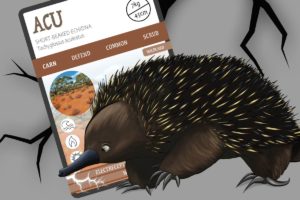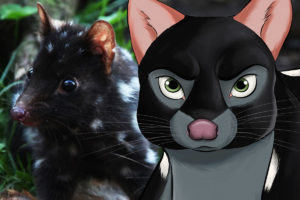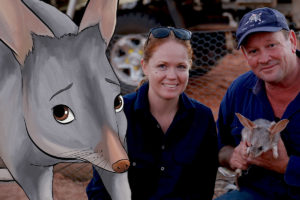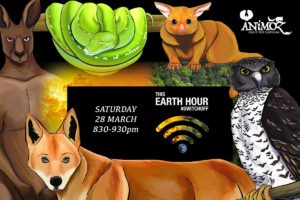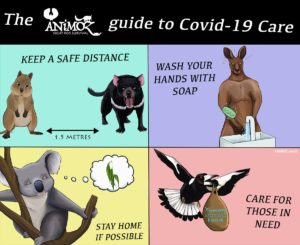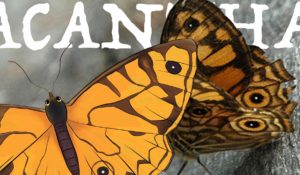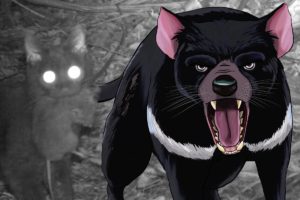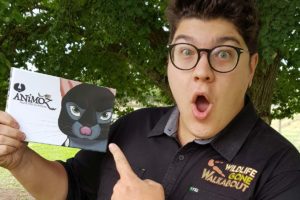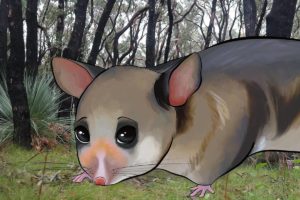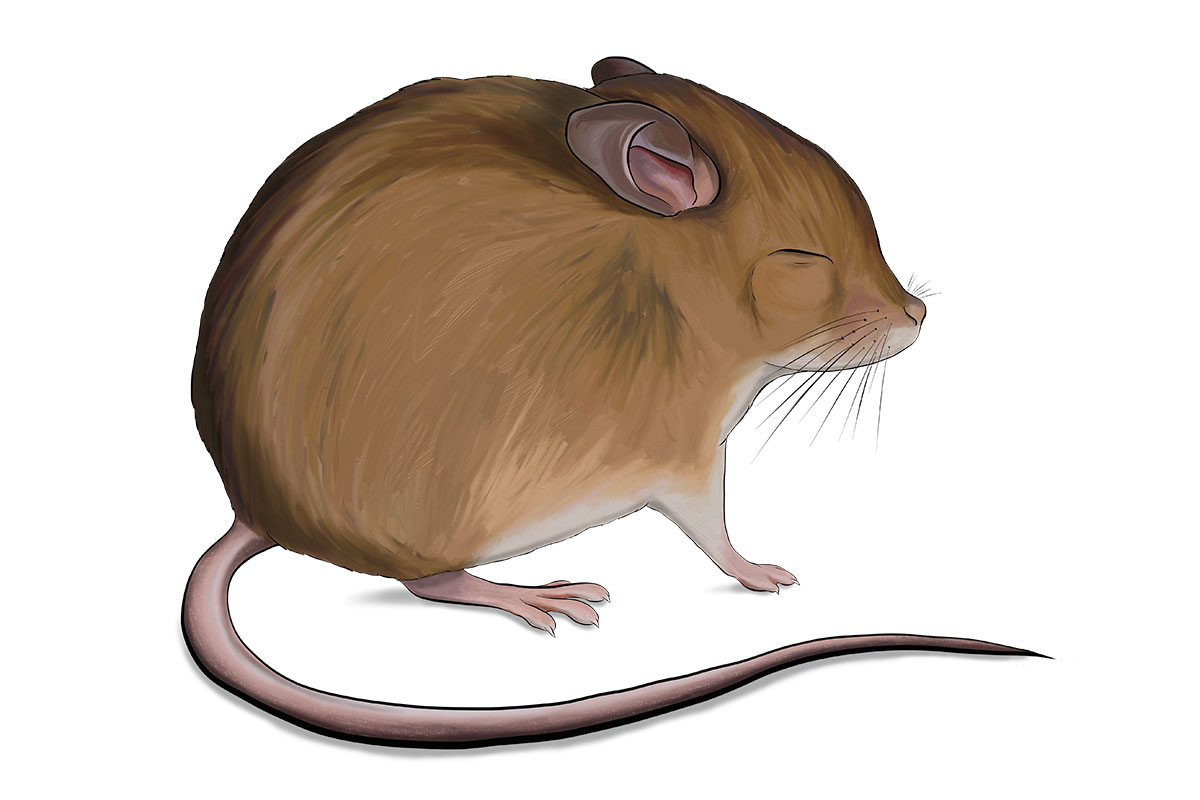
HERMAN - Sandy Inland Mouse
"A hot breeze stirs up sand as it moved across inland Australia. In the Desert BiOME, above-ground temperatures regularly reach over 40 degrees Celsius, heating the sand to unbearable temperatures. Using his BURROW power to shelter deep in the ground with his small family, HERMAN doesn’t notice the heat. He emerges only at night when the ground is cool, foraging for seeds and insects. HERMAN uses his HYDRATE power to obtain all his water from his diet without needing to drink. Foraging at night reduces his exposure to predators, but he must still be aware of opportunistic WING hunters and those with a CONSTRICTION power!"
ANiMOZ #207
Code: HERMAN
Common name: Sandy Inland Mouse
Taxonomy: Pseudomys hermannsburgensis
Level: OMNI | Form: FLEE
Status: COMMON | BiOME: DESERT
Overcomes: Drought | Fire
SUPERPOWERS:
BURROW:
HERMAN uses his BURROW power to dig down half a metre underground, which helps him avoid predators and extreme temperatures. But this isn’t any ordinary burrow - this special Superpower enables him to avoid any built-up mound of soil on the outside, making it harder for predators to find his home.
HYDRATE:
Using her HYDRATE power, HERMAN is able to survive indefinitely on seeds, selecting seeds with higher water content and extracting all the water she needs through her diet!
WEAKNESSES:
CONSTRICTION:
HERMAN automatically loses a Clash against any species with the CONSTRICTION Superpower
WING:
HERMAN automatically loses a Clash against a Wing species, as he is under threat of attacks from above!


Species Report: ACU the Short-beaked echidna
The Short-beaked echidna (Tachyglossus aculeatus) is ACU – a Carn species found across Australia. ACU are typically between 30 and 45 centimetres long, including their beak They have tongues up to 15 centimetres long to allow them to scoop up their prey. The largest Short-beaked echidnas are about seven kilograms, but they typically weigh two …
Know your ANiMOZ species: RiNU (Dasyurus viverrinus)
Know Your Species series: RiNU (Dasyurus viverrinus) One of the most important animals for a Ranger to understand when playing the Offical ANiMOZ Ultimate Ranger Gameplay is the Apex Predator. That becomes particularly important when one such species is also Highly Rare… Enter RiNU, the Eastern quoll! Deep in the dark of the forest …
Know your ANiMOZ species: RiNU (Dasyurus viverrinus) Read More »
Ranger Community: “There are lots of different ones I haven’t seen before!”
In our Ranger Community series, we hear from ANiMOZ Rangers out in the field about how they use the game to learn about, teach about and support wildlife. Ranger Pariya spoke to Headquarters about how she and her Junior Rangers use ANiMOZ! Ranger Pariya is mum to two Junior Rangers – Chara (7yo) and …
Ranger Community: “There are lots of different ones I haven’t seen before!” Read More »
From the Field: Ranger Cass talks about LAGOTi!
From the Field: Headquarters speaks to real-life Rangers working to save ANiMOZ species! In our From the Field series, we talk to scientists working across Australia to save the Rare and Highly Rare animals you know from the World of ANiMOZ. Today, we hear from Ranger Cass who works with LAGOTi! HQ: Hi Ranger …
Earth Hour 2020: ANiMOZ By Candlelight
Earth Hour 2020: Come play ANiMOZ by candlelight with us! Are you looking for something to do during an hour of darkness on this Saturday (28 March 2020)? It’s Earth Hour from 830-930pm and we’ll be playing ANiMOZ! On the official Earth Hour website, WWF-Australia say the impacts of the climate crisis …
COVID-19 Care: The ANiMOZ Guide
Sharing responsibility for COVID-19 Care This is a crazy time for the global community, and all you ANiMOZ Rangers out there are no exception when it comes to COVID-19 and caring for the community! We don’t wish to paint ourselves as experts here at Headquarters – it is super important that you seek professional …
Know your ANiMOZ species: ACANTHA (Eastern ringed xenica)
Know your ANiMOZ species: What do you know about ACANTHA? One of the most important types of creatures in an ecosystem are BASE level ANiMOZ. For Rangers playing the Official Gameplay, BASE species can get you double points in your ecosystem! ACANTHA (the Eastern ringed xenica) has a wingspan of 4cm, weighing less than …
Know your ANiMOZ species: ACANTHA (Eastern ringed xenica) Read More »
Could HARRiSii (Tasmanian devil) come back to mainland Australia? This Ranger thinks so…
Study in Tasmania suggests that HARRiSii helps to control numbers of invasive species like cats. A research Ranger in Tasmania has found that HARRiSii may have an important role to play in limiting the impact of Invasive Species like cats in their habitat. “We found in areas where [HARRiSii] have declined severely,” he said, “that …
Could HARRiSii (Tasmanian devil) come back to mainland Australia? This Ranger thinks so… Read More »
Ranger Community: “They can see their cards come to life!”
In our Ranger Community series, we hear from ANiMOZ Rangers out in the field about how they use the game to learn about, teach about and support wildlife. Ranger Adrian from Wildlife Gone Walkabout writes to Headquarters about how they use ANiMOZ! Children at their very core are scientists. They ask questions, predict answers, …
Ranger Community: “They can see their cards come to life!” Read More »
PARVU overcomes the fires!
Rangers in New South Wales have video proof that PARVU overcame the fires! There was real fear for PARVU amongst the Rangers that care for him. PARVU (or the Mountain Pygmy possum, as he’s sometimes called) lives in mountain ranges on the east coast of Australia, in a very limited geographical range. When the …

